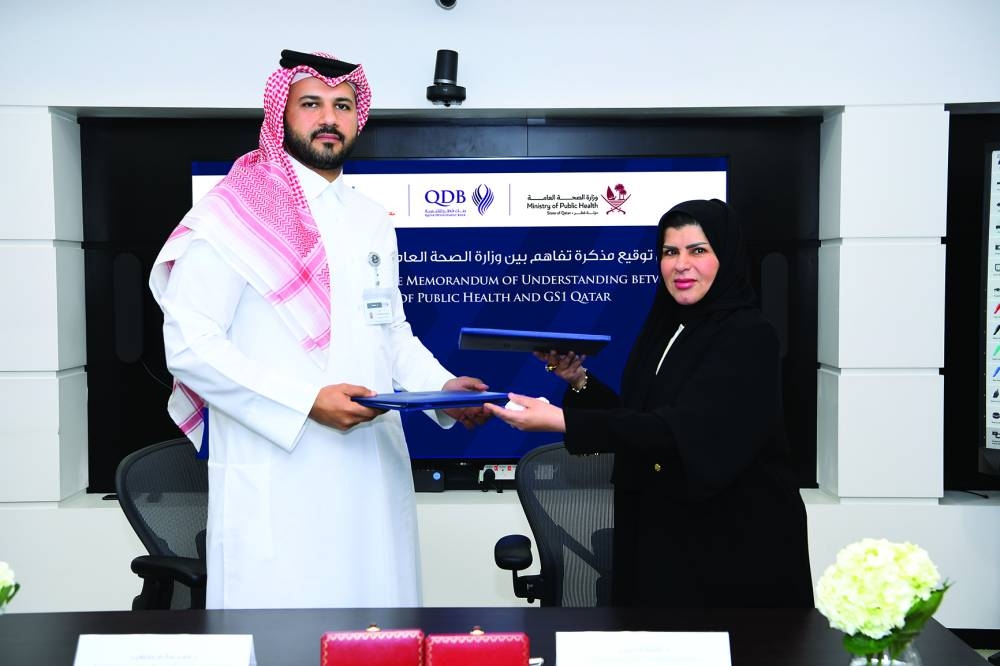Qatar’s pharmaceutical supply chains will undergo a fundamental transition thanks to a joint initiative between the GS1 Qatar Office, an entity operating under the umbrella of Qatar Development Bank (QDB), and the Ministry of Public Health (MoPH).
This will entail the implementation of the global standard system to regulate and track commercial drug circulation from manufacturers to patients by implementing a two-dimensional barcode and serial coding system for locally manufactured and imported pharmaceuticals.
The joint initiative will enhance the performance and efficiency of Qatar’s pharmaceutical supply chain operations throughout all stages, ensuring the authenticity of drugs circulating in the market and optimising both the delivery of medicines to patients, and the withdrawal of drugs from the market when needed.
Dr Aisha al-Ansari, director of Pharmacy and Drug Control Department at the MoPH, said the ministry is constantly striving to improve and develop healthcare services and bolster the medical sector in line with the Qatar National Vision 2030.
“In this context, we took the initiative to strengthen pharmaceutical supply chains in Qatar in cooperation with Qatar Development Bank represented by the GS1 Qatar Office. We look forward to this initiative having a positive impact on fields related to the manufacturing, supply and distribution of pharmaceuticals in the local market, in addition to promoting Qatari medical products in global markets.”
Dr Hamad Salem Mejegheer, chairman of the GS1 Qatar Office, said the initiative falls in line with the bank’s efforts to build partnerships and collaborate with various state institutions to develop local industries, support, and protect local products, and promote them in foreign markets, contributing to the diversification of Qatar’s economy.
“Our partnership with the Ministry of Public Health will enable the regulation of the commercial circulation of medicines in line with international requirements and legislation and improve drug supply chains across the country in compliance with international standards.”
Through this initiative, pharmaceutical companies in Qatar will have the opportunity to access training programmes on the global standard system for numbering. Awareness sessions will also be held to introduce commercial partners in the medical sector to the benefits of using barcodes to identify goods and merchandise, drawing from the experience of other countries in applying the system.
Healthcare partners in Qatar, including manufacturers, distributors, hospitals, and pharmacies, among others, will also be able to secure membership in the GS1 Qatar Office, which provides all required information to apply these standards while securing access to the electronic portal services that enables them to manage all requirements.
The process of applying two-dimensional barcodes and serial numbers on pharmaceutical packages enables the tracking and marketing of national products both locally and overseas, which contributes to boosting the healthcare industry’s exports, as well as the regulation of products and services in local markets.
The GS1 Qatar Office is the authority responsible for issuing international barcodes to identify Qatari products and services with unique numbers globally through the use of the (630) code reserved for Qatar, establishing a unified language for commercial exchange operations locally and overseas.
Ends

Dr Aisha al-Ansari and Dr Hamad Salem Mejegheer during the signing ceremony.
